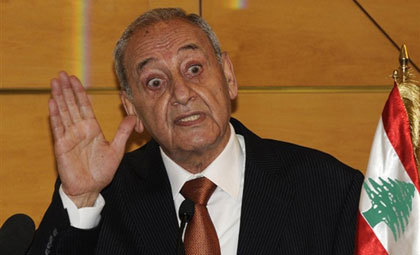
Published in NYT – Beirut: There was once a nice sea view at the Al Jazira beach club,
and umbrellas of palm fronds sticking from the sand are reminders of
nicer days. Nowadays, the place is surrounded by an ever-growing garbage
dump. “It used to be a beach,” said Hassan, a Syrian man who
works as a caretaker at the club and insisted on being identified only
by his first name because of a lawsuit concerning the city. “There was
sea. There were rocks. I used to fish.”
Just up the shoreline,
Mohammad Jradi, who has been fishing the waters of the Mediterranean off
Beirut for 20 years, said the trash had driven even the fish away. “All over the world, they have solutions for this, but not here,” he said. There
is no end, it seems, to Lebanon’s trash crisis, a potent symbol of the
dysfunctional, sect-based politics that define this tiny country. When
trash piles built up across this city two years ago, enveloping Beirut
in a nasty stench, they spawned a protest movement, called ‘You Stink,’
against the political class. Now, the latest episode of the crisis has become a uniquely Lebanese
story, entwining bird migration, civil aviation, mysterious gunmen and
the long story of Lebanon’s struggle to become a functioning state that
can at least take care of its trash, more than 25 years after emerging
from a long civil war.
Last year, as a Band-Aid solution to the
garbage crisis, the municipality opened the Costa Brava landfill on the
shoreline, not far from Beirut’s Rafic Hariri International Airport. And
so for many visitors to Beirut, a city whose shabby-chic architecture,
great cuisine and French colonial influences are otherwise enchanting,
the first thing to greet them was a strong whiff of garbage.











